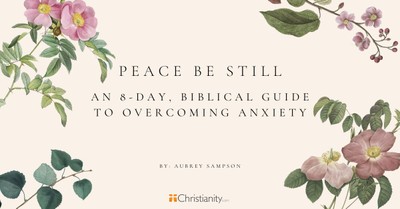The Limits of Outrage and the Need for Joy
- Published Jul 11, 2013
Yesterday I read this blog post by conservative political columnist and radio host, Erick Erickson. I have mixed feelings about Erick. Even though I find that I agree with many of his political views, I find his tone and style of politics is not my particular style. Still, he's a gifted writer and this time he shared something I think Christians need to hear. His point is that while he cares about politics and advocates for his point of view, outrage is not all there is to life. Erickson writes:
I’m sorry, but I can’t live my life constantly fixated on the political outrage of the day and I can’t be outraged about every . . . thing under the sun. I go out with friends and talk about stuff other than politics, I play with my kids, I love my wife, I cook gumbo and make fantastic ice cream, I watch a bit of TV, don’t read as much as I should, I go to church, and I try to focus on the good in a world filled with sin and bad and evil . . .
There is such a word here for Christians. A word for me, particularly. While it is good and right to be outraged at injustice in the world, we can't live on outrage. While it is good and right to roll up our sleeves and make a difference in the world by our lives and our actions, we can't live on activism. You see, the narrative of the Scriptures is not just about what's right and what's wrong in the world and in our own hearts. The grand story is that there is good news available. God didn't ignore the evil that the Fall produced by sin. He spoke by the entrance of His Son, Jesus, into the world (Hebrews 1:2). When Jesus cried those anguished three words on the cross, "It is finished," it signaled the beginning of the end. The power of sin and death, which so strangles the human soul, which ravages the planet, which obscures the glory and grandeur of our great God--this has been defeated, and like a helium balloon, is dying a slow death. Evil, my friends, is not winning. The story of the Bible is that there is hope in the death, burial, and resurrection of the Perfect One, the Son of God.
This is why Paul, in his letters, didn't speak with outrage about the world around him. Do you notice that about him? Take Phillippians, written from imprisonment, an unjust one. And yet in this letter he lifts high the risen and glorious Christ and commands Christians everywhere to rejoice. He doesn't use this as a diatribe against the despot, Nero, who used Christians as torches to light his dinner parties. He doesn't vent his frustrations at the Christians who were embarrassed by him and turned their backs on him. Nah, Paul doesn't do that. Neither does Peter in his letter to the "strangers and foreigners" of the 1st Century, a church marginalized by his culture. Now, he instead calls them to courage and faith and joy. Yes, joy. The same word used by the very first pastor of the Jerusalem Church, James. He says to his people that they could find joy even in the worst of persecutions (James 1).
This is not to be confused with as sort of happy clappy, saccharine Christianity devoid of proper lament. This is not to replace the brokeness that God does in the heart of Christians as he sees the state of the world. Think of Jesus who wept over Jerusalem. Think of Jeremiah, the tear-soaked prophet of God's people. Think of Habakuk who asked God, "How Long?" Lament is a good part of the Christian life. Grief is a necessary function of processing life in a fallen world. Even Jesus wept at the fruit of sin, the death that stole away the best years of his friend, Lazarus' life.
To find joy, to live for joy, to extol the beautiful Christian story of hope is not to adhere to the prosperity-gospel of "everything turns out fine" mentality, because everything doesn't really turn out fine in this life. But to find joy means to process everything in life: death, headlines, politics, evils, injustices, bad diagnoses, car breakdowns, corrupt leaders, wayward churches, divorce, foreclosure, abuse--all through the lens of the gospel story. After all we are citizens of another kingdom, we are people who look for a new city, whose builder and maker is God. This is what our Bible's tell us is reality.
Life was once perfect. Sin messed it (and us) up. We need a rescuer to save us who is like us but is not like us. That Savior came. He demands our allegiance, but offers us free grace. And those who put their faith in Him are part of a new people, a new way of life, a new kingdom.
So yes, it's good to be outraged at what is going in the world. It's vital to let our brokeness move us to action, joining the work of God already in progress. But more importantly it's incumbent on those who've tasted His joy to make the grand gospel our melody. Let's find the silver linings, the good things in life and use them as evidences of God's good grace. They are all around us, everyday, if only we look for them. Let's be as intentional about finding joy as we are about fomenting outrage.
Rejoice in the Lord always; again I will say, Rejoice.
Philippians 4:4


















